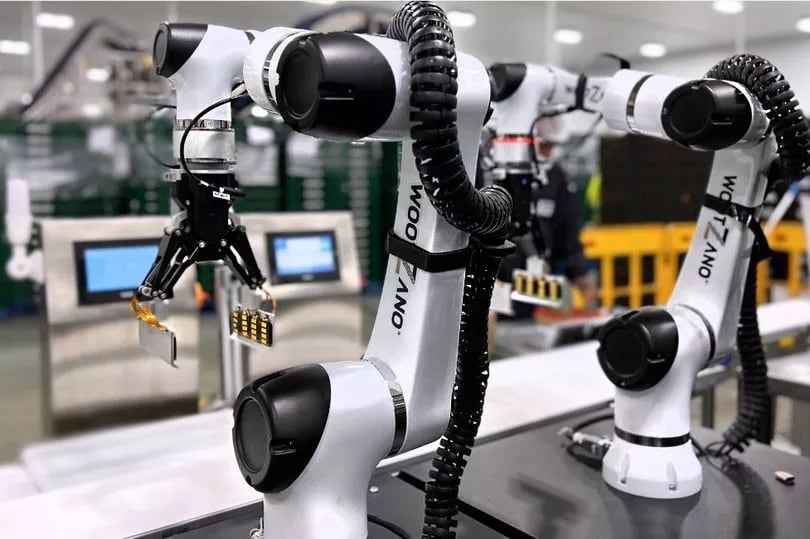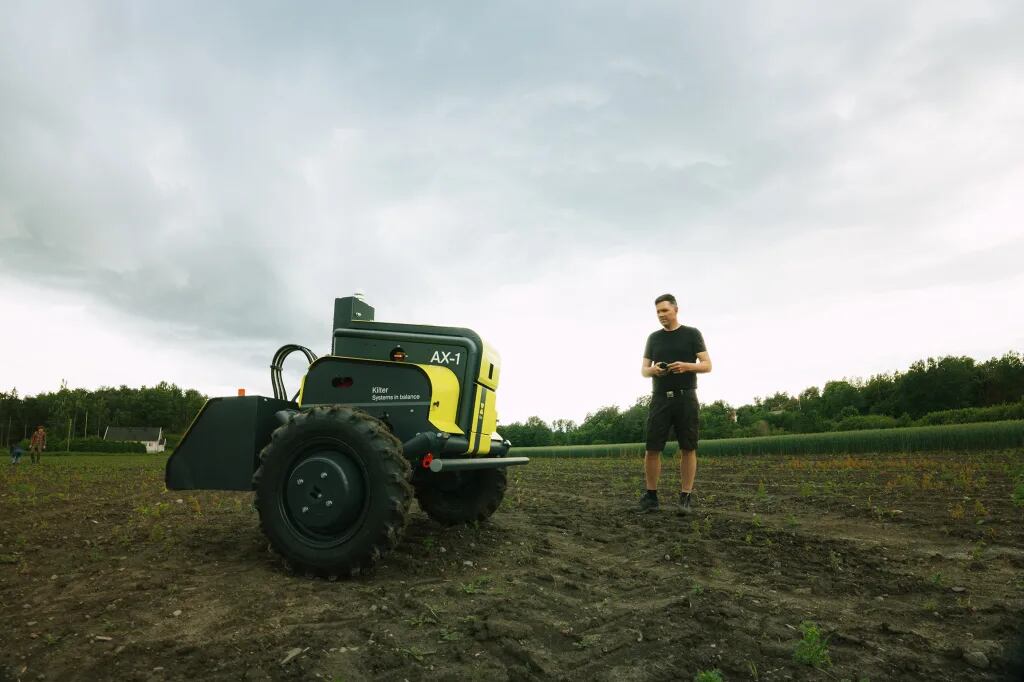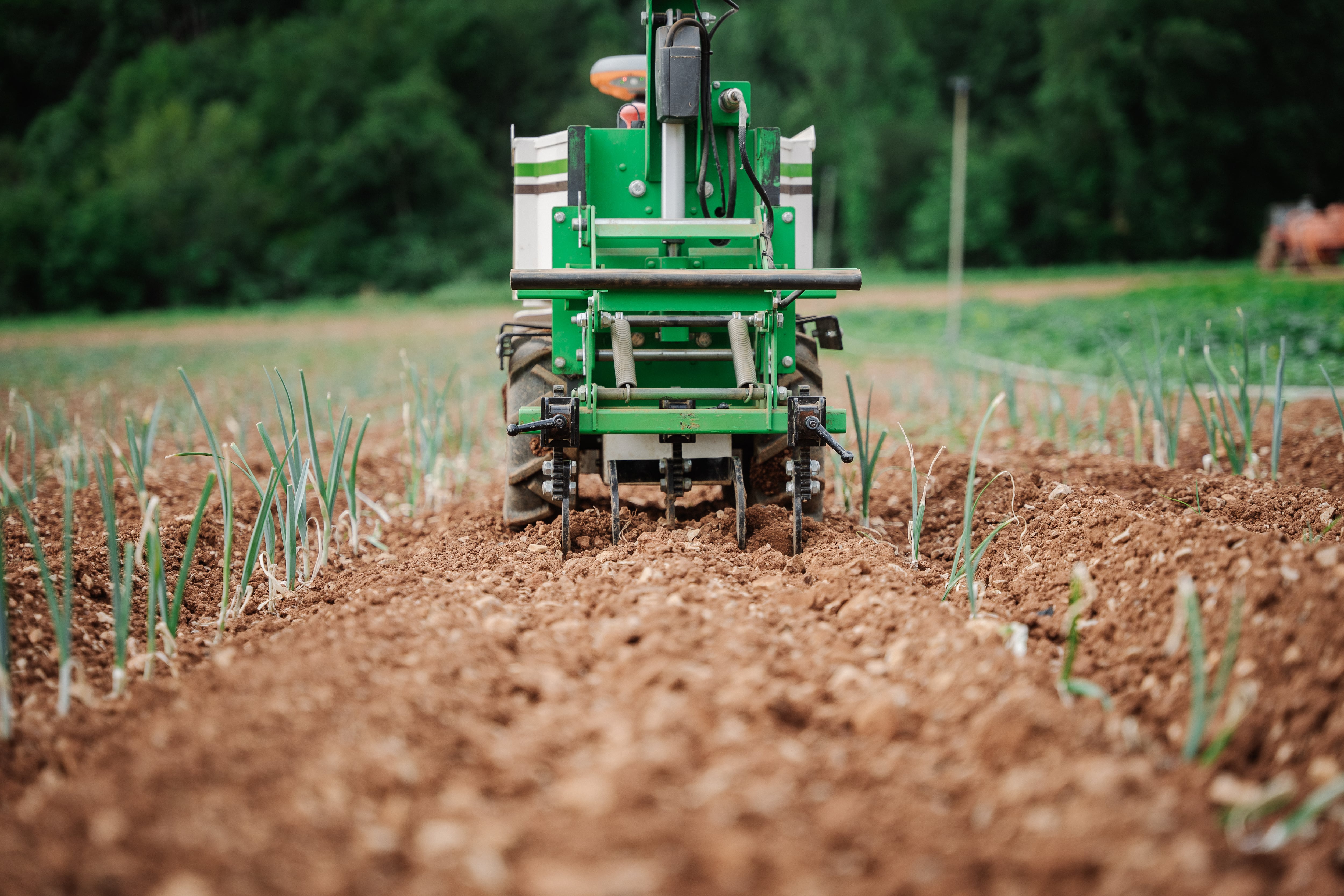The company had until November 28, 2025 to file an appeal, a process it cannot fund because Scottish law prohibits using company assets for legal representation once accounts are frozen.
Founder Dr. Atif Syed has issued an urgent plea for support, warning that Wootzano’s collapse would not be due to market failure but to what he calls a “procedural trap” and a rigid enforcement approach that undermines UK innovation.
Wootzano has been a notable player in agri-robotics, shipping commercial robots for fresh produce handling internationally.
“The issue was never insolvency,” Syed told AgTechNavigator. “It was a failure to apply flexibility and discretion embedded in both the loan contract and Innovate UK’s own published policies.”
Loan terms vs. enforcement
Wootzano received an Innovation Loan of over £800,000 in 2022 to develop a quality-assessment system, alongside previous grants and loans totalling over £2.5 million.
According to Syed, the loan agreement included provisions for term extensions, repayment flexibility, or conversion to equity if the funded product had not yet reached commercialization.
These options were actively discussed with Innovate UK, Syed said. “We had provided them with a verified list of incoming investors and over £537m in signed commercial contracts. They had full visibility of our investment pipeline, £537m in signed commercial contracts, and our ability to repay in full. Despite this, Innovate UK Loans Limited moved straight to the most extreme enforcement step.”
Syed argues that this approach acts as an “insolvency accelerator”, creating liquidity crises rather than mitigating risk.
“By declaring default and freezing accounts, Innovate UK removed the very liquidity needed to continue operating and repaying the loan,” he said.

Impact on Wootzano and the sector
Wootzano’s Avarai™ robotic system, used for post-harvest handling in packhouses across the UK, Japan, Malaysia, and the US, remains in high demand.
“Orders were growing, not shrinking,” Syed said. “If resolved, Wootzano can immediately return to growth. But Innovate UK’s actions have stalled delivery schedules and undermined confidence that took years to build.”
Syed warns the case signals a broader risk for UK deep-tech ventures: “The loan programme was designed to support companies through commercialisation, not to act as a rigid, punitive mechanism that can destroy successful businesses overnight. The UK risks signalling to founders and investors that even high-growth, high-export deep-tech companies are not safe from disproportionate state enforcement.”
Innovate UK response
An Innovate UK spokesperson told AgTechNavigator:
“Innovation is inherently risky and new technologies, markets and businesses can fail. This is why Innovate UK provides loans to SMEs to bridge the gap between late-stage R&D and commercialisation. The loans are patient capital and are flexible.
“We can confirm that Wootzano received R&D funding from Innovate UK (a combination of grants and loans totalling over £2.5m), as this is a matter of public account. However, we cannot comment further on individual cases."
What’s next?
Syed says Wootzano needs urgent engagement from Innovate UK, legal flexibility to complete its appeal, and advocacy from the innovation community.
“If successful, we return immediately to growth, restore jobs, and resume exports across multiple global markets,” he said.
To policymakers, his message is simple: “Support innovation as intended. Apply discretion. Engage before enforcing. Recognise that deep-tech companies scale differently and require flexible partnership, not rigid process.”
Wootzano’s crowdfunding campaign is here





